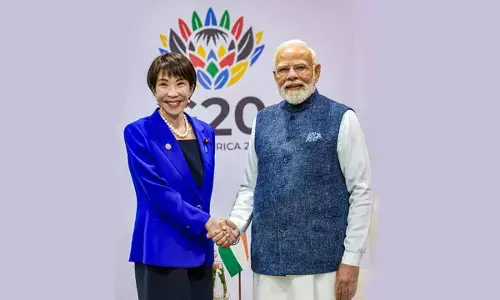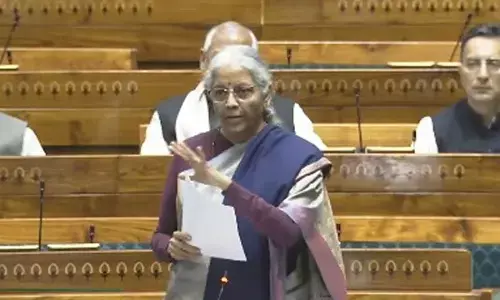Nidhi Saxena’s ‘Sad Letters of an Imaginary Woman’ set for world premiere at BIFF

Nidhi Saxena’s poignant debut film, “Sad Letters of an Imaginary Woman,” has captured the Asian Cinema Fund 2024 and is poised for its world premiere at the Busan International Film Festival (BIFF).
Nidhi Saxena’s poignant debut film, “Sad Letters of an Imaginary Woman,” has captured the Asian Cinema Fund 2024 and is poised for its world premiere at the Busan International Film Festival (BIFF). This personal cinematic exploration delves into themes of loneliness, anxiety, and the elusive nature of memories. Tied together by phone calls from the future to the past, the film portrays an older Nidhi connecting with her younger self, painting a vivid picture of isolation and introspection.
A cinematic journey through time and memory
“The film is about loneliness, anxiety, and mostly memories,” Saxena shared in an interview. “Memories do not have any order; at times, they can be ‘false’, sometimes carry an air of uncertainty, and many times are blurry. But there are also instances when they are clearer than the present.” The narrative’s unique structure sees adult Nidhi and child Nidhi coexist in scenes, symbolizing the past standing alongside her present. The slow passage of time in the old house, depicted almost as an illness, contributes to the film’s melancholic pace. Saxena’s deliberate storytelling aims to immerse viewers in the monotonous reality of being trapped for years in an abandoned home.
An acknowledged love for Asian cinema
Expressing her excitement over winning the Asian Cinema Fund, Saxena emphasized her admiration for Asian filmmakers. “I have always loved Asian cinema the most: from Hong Kong, Korea, Malaysia, Taiwan, and Sri Lanka. We have something that Europe does not. Look at Tsai Ming-Liang and Apichatpong; maybe it is because of the Buddha. So, I am happy to be a part of Asia’s biggest festival. It is a link in the chain of this lineage that I feel more connected to. Busan is such a prestigious platform, and for my first film, it is a great acknowledgment that gives me a lot of belief in my vision as a filmmaker.”
A transition from fine arts to cinema
Having studied writing at the Film and Television Institute of India (FTII) in Pune, Saxena’s initial education was in fine arts. She found that certain expressions could not be captured through painting and sculpture alone, leading her to the dynamic medium of film. “I think films have much more to do with painting, sculpture, and music than with storytelling. There can be a thread of a story in images and sound, or there might not be. But reducing it to just a story is unfair. Dialogue can be a part of the sound but cannot overpower it.”
Crafting a unique cinematic experience
Saxena’s approach to filmmaking is deeply rooted in her love for visual and auditory elements. “Most of the things I wrote were more like a series of imagery than just a story of characters. Everything visible on the screen is a character, and all of that cannot be written in a screenplay. I do not see the film as just a medium to tell an interesting story; as it is seen on a screen, watching every scene is and has to be a unique experience, invoking senses that the viewer has never experienced before.”
Empowering the next generation of filmmakers
Beyond her own work, Saxena is committed to democratizing filmmaking. She conducts workshops with girls from tribal and rural areas, equipping them with cameras and mentoring them for several weeks.
“The stories that come out from them are amazing - challenging all structures, giving us all new ways to look at visual communication in the form we call cinema. Why should someone come from outside and claim to make a film about you? With an outside gaze, they make films on women and tribals; what will they gain from your gaze? Why not make them capable enough to make a film about themselves or even about you?”
Future projects and vision
Saxena is already working on her next project, a surreal story of women’s longing and desire hidden beneath societal norms, blending mythology and carnal elements. “Though contemporary, it boasts of much magic realism and will be set in the Himalayas.
I have already started a dialogue with various potential partners and actors.”














